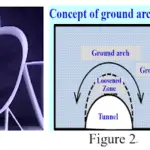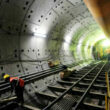It is impossible to exaggerate the significance of different property inspections and inspectors in negotiating the challenges of property ownership, whether residential or commercial. Every kind of inspector ensures that buildings in all settings are safe, legal, and functional by bringing a particular skill set and focus. These experts are vital to preserving the integrity and worth of properties, from the foundations to the last details.
Inspectors improve building safety and efficiency by helping to comply with building standards and regulations and by spotting any issues before they become expensive disasters. This book describes the many kinds of inspections and inspectors, providing information about each specialty and the reasons why their work is essential to many facets of property maintenance and purchase.

Residential Building Inspectors
Enforcing local building laws and guaranteeing safety standards are fulfilled during housing construction, residential building inspectors are vital to the real estate and construction industries. Working for municipal governments, these experts check that buildings are structurally sound and that plumbing and electrical systems are installed correctly. To be sure local laws are being followed, they examine blueprints, issue permits, and visit sites. Their responsibility is essential to making sure that significant repairs and new buildings adhere to safety and functionality requirements, which safeguard future inhabitants and preserve community building standards. Their clearance is essential for a project to go forward since it saves developers and property owners from expensive delays and guarantees that all buildings are safe and compliant.
Commercial Building Inspectors
Specialists in office buildings, shopping malls, and industrial properties, commercial building inspectors handle unique requirements not found in residential inspections. Big facilities are evaluated for adherence to accessibility and fire safety rules. To be sure they can support the demands of commercial operations, these inspectors assess the integrity and operation of vital building systems, including plumbing, electrical, and HVAC.
To be sure they comply with local commercial property regulations, they also assess outside elements like gardens and parking lots. Often exposed to greater traffic and stricter rules than residential properties, commercial buildings require the critical insights that commercial building inspectors provide to preserve the operational standards and safety of these facilities. Their experience guarantees that commercial buildings meet all necessary laws to prevent legal and financial consequences, in addition to offering safe settings for companies and patrons.
Home Inspectors
Although they are not only experts in existing residential properties, home inspectors concentrate mostly on their evaluation. They are essential to the examination of many residential property types, including warranty inspections and thorough evaluations of new builds, particularly in areas like Alberta where the Alberta New Home Warranty Program safeguards house purchasers.
Home inspectors examine plumbing, electrical, HVAC, structural components, and other systems to find any possible problems that could lower the value of the property or require major repairs. Both buyers and sellers need thorough assessments; buyers get a better idea of the property’s condition before completing their purchase, which enables them to make wise decisions and successfully negotiate terms; sellers gain from recognizing and resolving problems that could prevent a sale.
These inspectors create detailed home inspection reports that list possible future issues in addition to the urgent repair requirements. This degree of knowledge is very helpful in preserving high standards of residential property quality and enabling more transparent and effective real estate transactions. For anyone engaged in real estate, working with a qualified home inspector—especially one who has worked on new builds and warranty evaluations—is essential to guaranteeing a complete grasp of the state of a property.
Structural Engineers
Specialists in building integrity and support systems, structural engineers concentrate especially on the robustness and longevity of structural elements. Structural engineers evaluate load-bearing walls, foundations, beams, and other structural components that affect the stability and safety of a building; they do not concentrate on the basic construction features of a building like conventional home inspectors do.
Like Us on Facebook!
Their evaluation of homes exhibiting indications of structural stress, having undergone major renovations, or being historic structures needing careful attention to preserve their integrity is essential. Structural engineers make important recommendations for required reinforcements or repairs, along with thorough assessments that evaluate the longevity and safety of a building’s structure.
Subscribe Us on YouTube!
This expert examination makes it possible to spot potential structural issues that, if ignored, could necessitate costly repairs. It also ensures that buildings continue to meet all necessary safety regulations and provide secure areas for use or living. Engineers knowledgeable assessments protect tenants’ physical health as well as property owners’ financial interests by enabling them to make wise choices concerning intricate structural investments.
Electrical Inspectors
Specializing in constructing electrical systems, electrical inspectors make sure that all installations adhere to local and national electrical rules as well as safety regulations. Their labour is crucial for both new buildings and renovations or updates to existing homes. Inspectors of electrical systems look at the wiring, fixtures, electrical panels, and adherence of established electrical systems to safety standards.
Preventing possible threats, including electrical fires or system malfunctions, which can seriously endanger both property and human safety, requires this kind of inspection. Electrical inspectors offer thorough reports that point up any non-compliance concerns, defective installations, or outdated electrical components that require replacement.
Electrical inspectors are essential to the upkeep of the efficiency and safety of residential and commercial buildings by making sure that electrical systems are compliant and operating safely. Their particular knowledge enhances the general safety and worth of the property by enabling property owners to avoid the expensive and legal ramifications of electrical system malfunctions.
Plumbing Inspectors
Plumbing inspectors are experts at looking at the plumbing systems of both residential and commercial buildings. They make sure all plumbing installations—pipes, fixtures, and sewage systems—acheive regional plumbing regulations and requirements. Their assessments are essential in pointing out problems. These include leaks, a low water supply, incorrect pipe installation, or other contamination hazards that could compromise the hygienic and functioning aspects of the property.
Plumbing inspectors evaluate wastewater system integrity, valve and fixture operation, and the state and installation of water heaters. In addition, they check for adherence to environmental regulations, notably those pertaining to water conservation and appropriate garbage disposal techniques.
Making sure plumbing systems are effective, safe, and able to satisfy the needs of property occupants depends on the knowledge that plumbing inspectors offer. Through their prevention of possible concerns that could result in serious water damage, expensive repairs, or health problems, these assessments protect the value of the property and provide a secure living or working environment.
HVAC Inspectors
The assessment of building heating, ventilation, and air conditioning systems by HVAC inspectors guarantees that these systems are safe, effective, and in compliance with current regulations. Their labour is essential to both new installations and current systems in both residential and commercial buildings.
HVAC inspectors assess furnaces, air conditioners, ducts, and other associated components for both functionality and condition. They search for problems, such incorrect installation, inadequate maintenance, or antiquated equipment, that could reduce the effectiveness of the system. Inspectors of HVAC systems also verify that energy efficiency and refrigerant management comply with environmental laws.
Recommendations for upgrades, repairs, or modifications in maintenance procedures can result from an HVAC examination; they are essential for maximizing system performance and energy consumption. Through the appropriate operation of HVAC systems, these inspectors support the maintenance of indoor air quality and comfort and assist property owners in efficiently controlling energy expenditures. Their thorough evaluations are essential to averting system breakdowns that could lead to unpleasant living circumstances and expensive repairs or replacement costs.
Fire Safety Inspectors
Building compliance with the necessary fire safety norms and regulations is mostly dependent on the work of fire safety inspectors. Their labour is necessary to keep industrial, commercial, and residential properties safe. Fire extinguishers, sprinkler systems, fire alarms, and emergency exit routes are just a few of the things that fire safety inspectors check to make sure they are all in good operating order and meet safety regulations.
In addition, these inspectors evaluate a building’s general fire preparation by looking for possible risks such improperly stored flammable goods, blocked exits, and insufficient emergency lighting. Their assessments assist in pinpointing hazards that could prevent a safe evacuation or hasten the spread of a fire.
Fire safety inspectors lower the possibility of property damage, save lives, and help avert possible catastrophes by making sure that properties follow stringent fire safety rules. For owners of properties looking to protect occupant safety and reduce liability in the case of a fire, their knowledge is priceless. Their findings offer important suggestions for enhancing safety precautions and upholding local and national fire regulations.

Environmental Inspectors
Environmental inspectors specialize in evaluating sites for potential health dangers or legal responsibilities. When it comes to spotting things like mould, lead paint, asbestos, and radon, they are quite crucial. Their assessments are essential to guaranteeing that houses are livable, safe, and in compliance with environmental health laws.
Environmental inspectors test and measure dangerous materials during their evaluations using specialized equipment. In their thorough reports on their findings, they give suggestions for cleanup or mitigation actions should hazardous chemicals be found. To know how their properties are doing environmentally and to take the required steps to address any problems, property owners need to read these reports.
Buying older homes, remodelling, or anytime there’s a suspicion of contamination, call for environmental examinations in particular. These inspectors help protect the health of present and future residents and help property owners avoid possible legal problems associated to environmental safety by identifying and eliminating environmental hazards.
Certified Energy Auditors
As specialists in evaluating building energy efficiency, energy auditors offer insightful information that can result in substantial financial savings and environmental advantages. Their assessments concentrate on how well a property uses energy and point up areas that might be improved to lower energy use and raise general sustainability.
Energy auditors examine a number of factors throughout an examination, including lighting, heating and cooling systems, window efficiency, and insulation quality. They find places where energy is being lost using equipment like infrared cameras and blower doors. The audit produces an extensive report that describes the property’s energy efficiency and suggests remedies like replacing old equipment with more energy-efficient ones, fixing leaks, and adding more insulation.
Beyond only lowering costs, an energy audit improves a property’s comfort level, raises its market value, and lessens its environmental effect. It is a very advantageous technique for both residential and commercial properties since property owners may get long-term savings and a reduced carbon footprint by putting the suggestions from an energy audit into practice.
Each Inspector and Inspection Bring Their Own Value
Everybody involved in property management, investment, or upkeep needs to be aware of the different kinds of inspections and inspectors. Every kind of inspector contributes specific knowledge to guarantee structures are efficient, safe, and legally compliant. For any of these tasks—structural integrity, fire safety compliance, environmental dangers, or energy efficiency optimization—choosing the best inspector for your needs is essential to getting precise and useful information.
Make sure you hire the right expert for your particular requirements, whether you are intending to buy, renovate, or just want to check that your building is safe and efficient. You’re not looking for a commercial building inspector, for instance, if you’re looking for a home inspection in Calgary. Rather, you want to be sure you’re dealing with a committed home inspector who knows the subtleties of the area and specializes in evaluating residential properties.

















